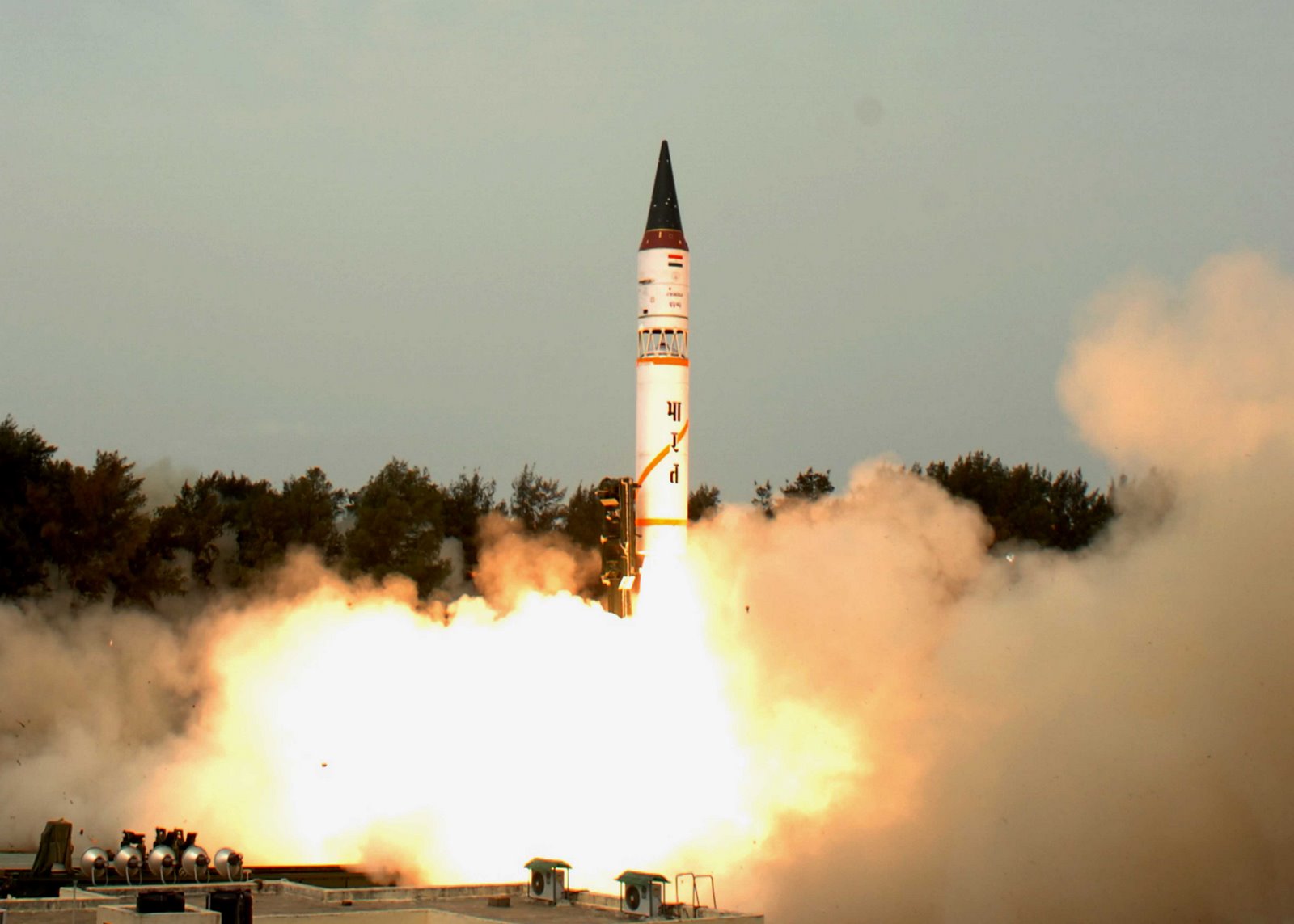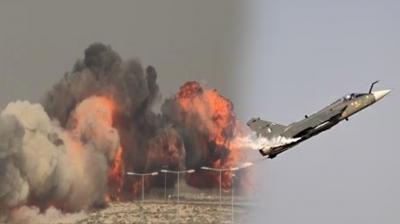
Balasore (Odisha): India today successfully
test-fired its short-range nuclear capable ballistic missile
Agni-1 with a strike range of over 700 km from a test range
off the Odisha coast, Defence sources said.
The indigenously developed surface-to-surface missile
was launched as a part of a periodic training activity by the
Strategic Forces Command (SFC) of the Army to consolidate
operational readiness, they said.

The state-of-the-art missile was launched around 8.30 am
from a mobile launcher at Pad 4 of the Integrated Test Range
(ITR) at the Dr Abdul Kalam Island, formerly known as Wheeler
Island, the sources said.
Describing the trial a "complete success", they said that
all the mission objectives were met during the test.
"The trajectory of the trial was tracked by a battery
of sophisticated radars, telemetry observation stations,
electro-optic instruments and naval ships right from its
launch till the missile hit the target area with pin point
accuracy," the sources said.

The sophisticated Agni-I missile is propelled by a solid
rocket propellant system and is equipped with a specialised
navigation system that ensures it reaches the target with a
high degree of precision, they said.
The missile, which has already been inducted into the
armed forces, has proved its performance in terms of range,
accuracy and lethality, the sources said.
Weighing around 12 tonnes, the 15-metre-long Agni-I can
carry payloads up to 1,000 kg and is capable of hitting a
target beyond 700 km. The missile is also capable of
carrying nuclear warheads.

The Agni-I was developed by the Advanced Systems
Laboratory (ASL) in collaboration with the Defence Research
Development Laboratory (DRDL) and the Research Centre Imarat
(RCI). The missile was integrated by the Bharat Dynamics
Limited, Hyderabad.
The ASL is the premier missile development laboratory of
the Defence Research and Development Organization (DRDO).













